9 Ways to Combat Fear
Dec 24, 2022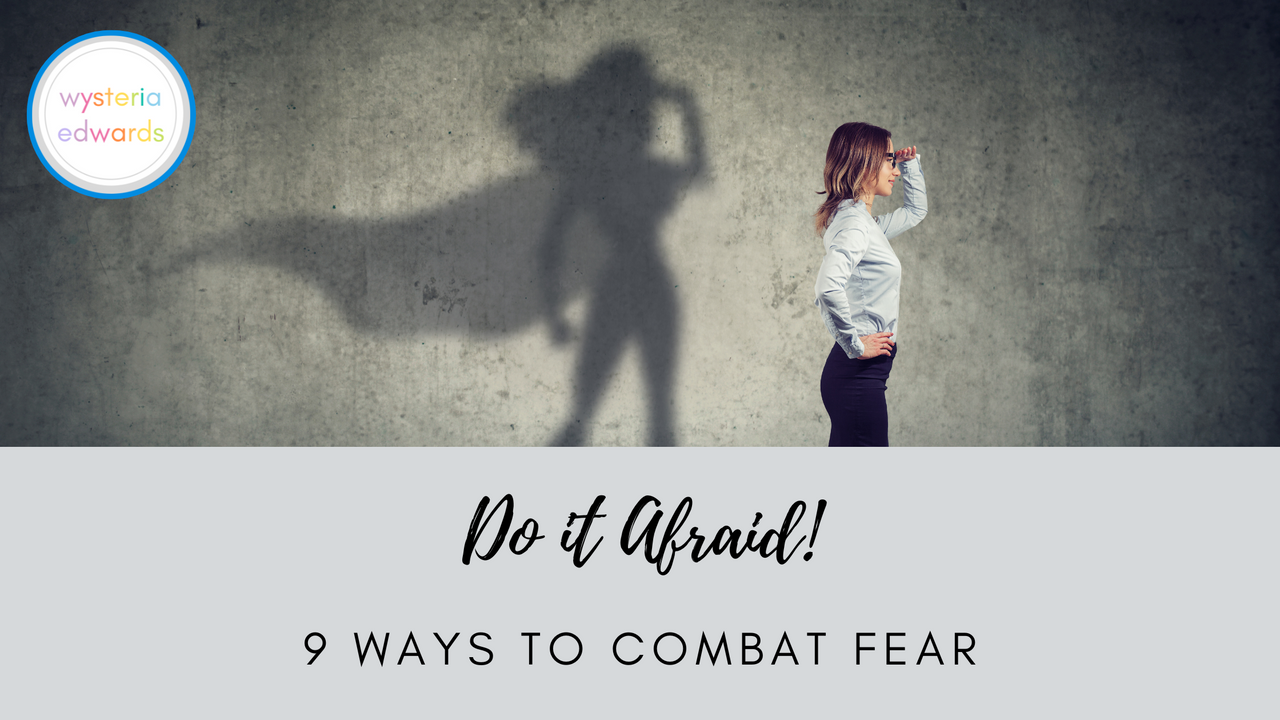
Fear gets the best of us, whether it is fear of failure, fear of success, or even fear of fear.
All of us have experienced fear at some point in our lives, which can be a fundamental stumbling block that holds us back from being truly successful.
Fear can't hold you back forever if you don't let it.
Here are my top 9 ways to combat fear:
1. SEPARATE REALITY FROM PERCEPTION
Ask yourself what is going on, locate the facts and place them over your feelings.
When our thoughts get negative, we MUST challenge them to break the cycle.
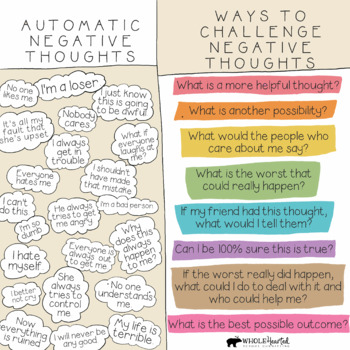
If we are in the habit of going right to the negative, our children will often follow our lead. We must model this process for them. I love this poster from WholeHearted School Counseling (download her free poster by clicking on the link) that explains this concept.
2. IDENTIFY THE TRIGGER
What's a trigger?
A trigger is a connection between our conscious mind and a painful memory.
Our senses and nervous system "trigger" us when they are trying to keep us safe from a perceived danger, present or past.
Ask yourself, "What happened right before I felt this way?"
Did you see, smell, or feel something in the current environment that brought about the adverse reactions?

When I was healing from Narcasassitic Abuse, I was walking through an airport and was triggered when I smelled a man wearing the same cologne as my former abuser.
BOOM!
Instantly, my body felt unsafe.
My hands started to shake, my breathing quickened, and I began to cry. All from a freaking smell! That's a trigger, folks.
A trigger can be summed up in an I-Statement.
In my case, I felt unsafe.
The Gottman Institute compiled a great list below.
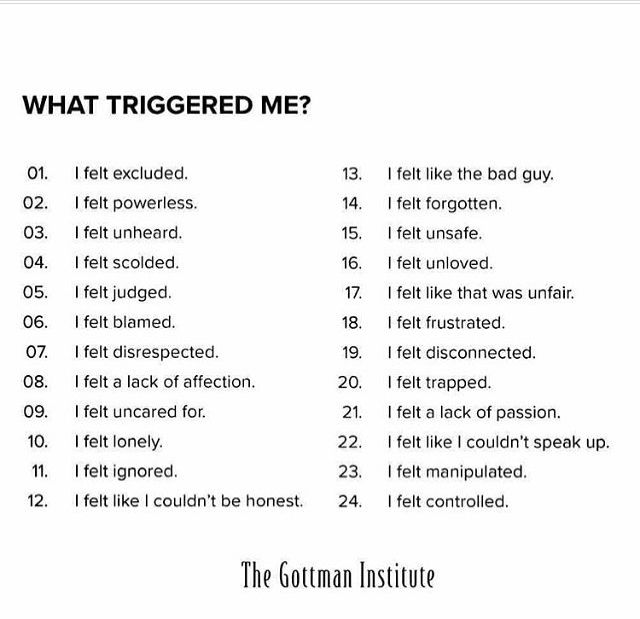
Identifying a trigger takes a great deal of self-awareness.
It's brave work to state how a trigger makes your body feel inside.
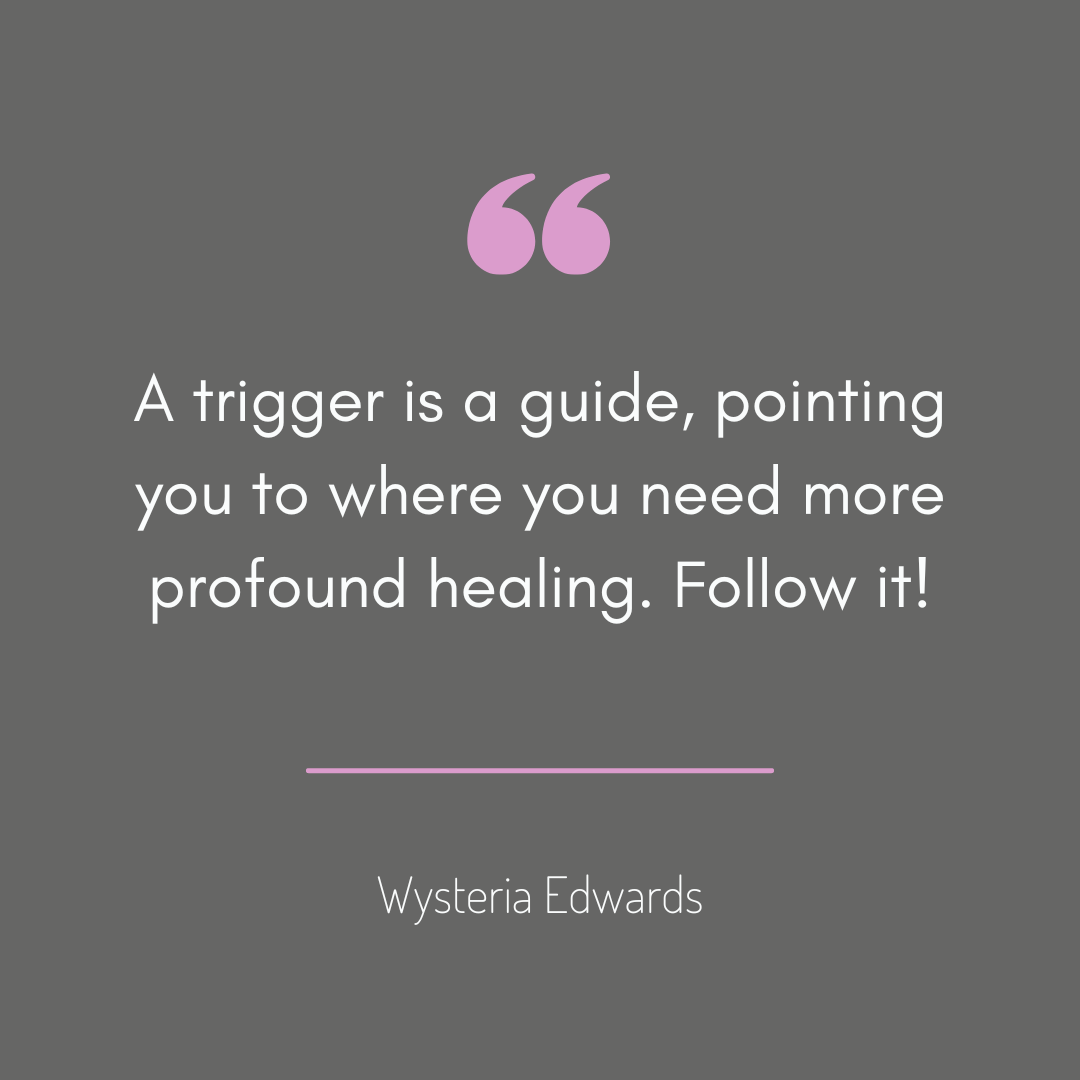
3. KNOW WHERE FEAR LIVES IN YOUR BODY
A lot of times, fear takes over physically. It affects different people in different ways.
Identify if/how it affects your physical body and do the work to take care of your body.
(Ex: if you hold stress in your back, you can learn stretches, foam rolling, etc., to avoid the pain.)
In my experience, fear makes my whole body tighten, and I am overwhelmed with emotion.
For those with avoidant attachment learning to identify where in your body you feel something will be more difficult. Focus on your physical sensations: sensations: warm, cold, sweaty, shaky, etc.
I noticed that when I was startled, I'd become irate.
Huh? What! Why is that?
Always remain curious about your reactions.
There are no wrong answers.
4. PRACTICE GRATITUDE
Every day, list out 1-3 things you are thankful for.
It doesn't matter how big or small it is; gratitude helps shift the mind into a positive light, which over time, overcomes fear.
I know a woman who, at the age of 60, wrote down five things she was grateful for every day. The practice kept her from dwelling on the negative.
I use BLOOM (iPhone, but there are similar ones for Android users) which has me write down three things I'm grateful for each morning and set my intention for the day. It's a tremendous and beneficial daily practice.
Here's a template to get started. Click on the image to download and save.
5. LISTEN TO YOUR INNER VOICE
Monitor your inner conversations.
If you wouldn't say it to a friend, don't say it yourself.
Speak positively to yourself and remind yourself of your strengths.
At a retreat, a counselor had us use a large mirror and place it between a partner and us. She had us say the things to ourselves that were negative:
"I'm fat."
"I'm a bad ________________." (Wife, mother, teacher, friend, etc.)
"You're so ________________." (stupid, too much, misunderstood, etc.)
We all know the negative things we say to ourselves. But then she turned it on us, lowered the mirror, and said, "Now say that to your friend."
WHAM!
Think of the person you love most, and would you say it to them?
Something to think about.
6. CREATE A NEW ASSOCIATION
Remind yourself that the feeling and the moment will pass.
Focus on the positive outcome of the situation rather than the scary in-between.

7. LOOK AT THE GLASS HALF FULL
Perception is compelling, and how you feel about your situation dictates how you respond.
So think positively, and you'll give yourself a much better chance of success.
This won't happen overnight; practice with just one thought.
Try this:
What is one recurring negative/fearful thought you have?
"My boss will be mad at me because I didn't finish the report."
Work on reversing this one thought.
"Although my boss may be disappointed that the report isn't finished, I will apologize and do my best to finish by the end of the work day today."
Over time, this will become a habit.

8. PRACTICE BREATHING EXERCISES
Breathing helps center your body; when you stop breathing, your heart stops beating.
You can do a grounding exercise or take five deep, long breaths at any point to calm and center yourself.
It is best to start your day with this, but feel free to practice all day long.
What's lovely about our breath is that it's always in the present moment.
When we are triggered by the past or anxious about the future, we return to our bodies by focusing on our breath. @canva/ Click to download and save.
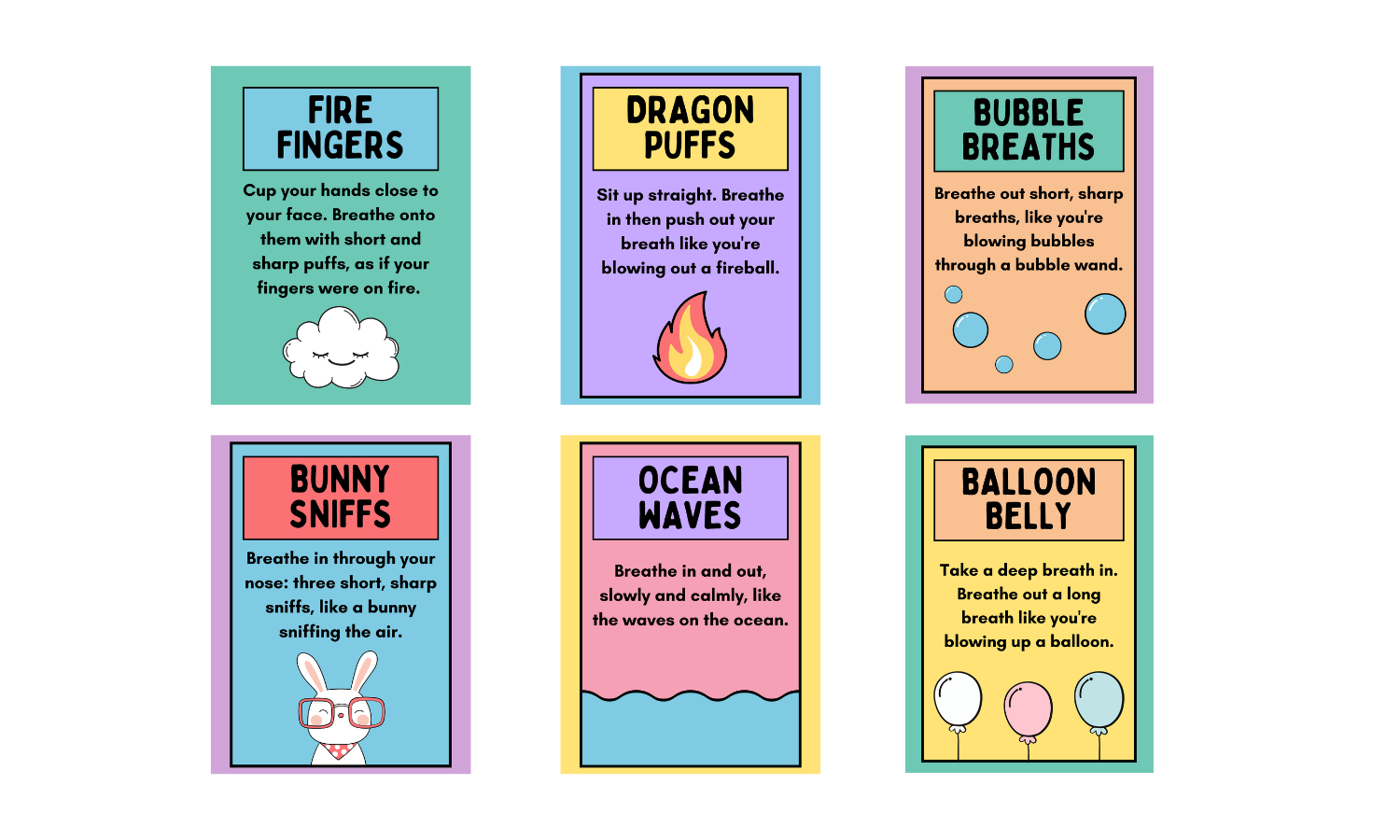
9. CREATE A SAFE SPACE
Do whatever you need to do to feel safe and comforted.
Find somewhere safe you can retreat to when ill feelings begin- whether this is a real place, such as your bedroom, or an area in your mind, such as the beach.
This sense of comfort will soothe you and allow you to face your fear.
I believe in you!



